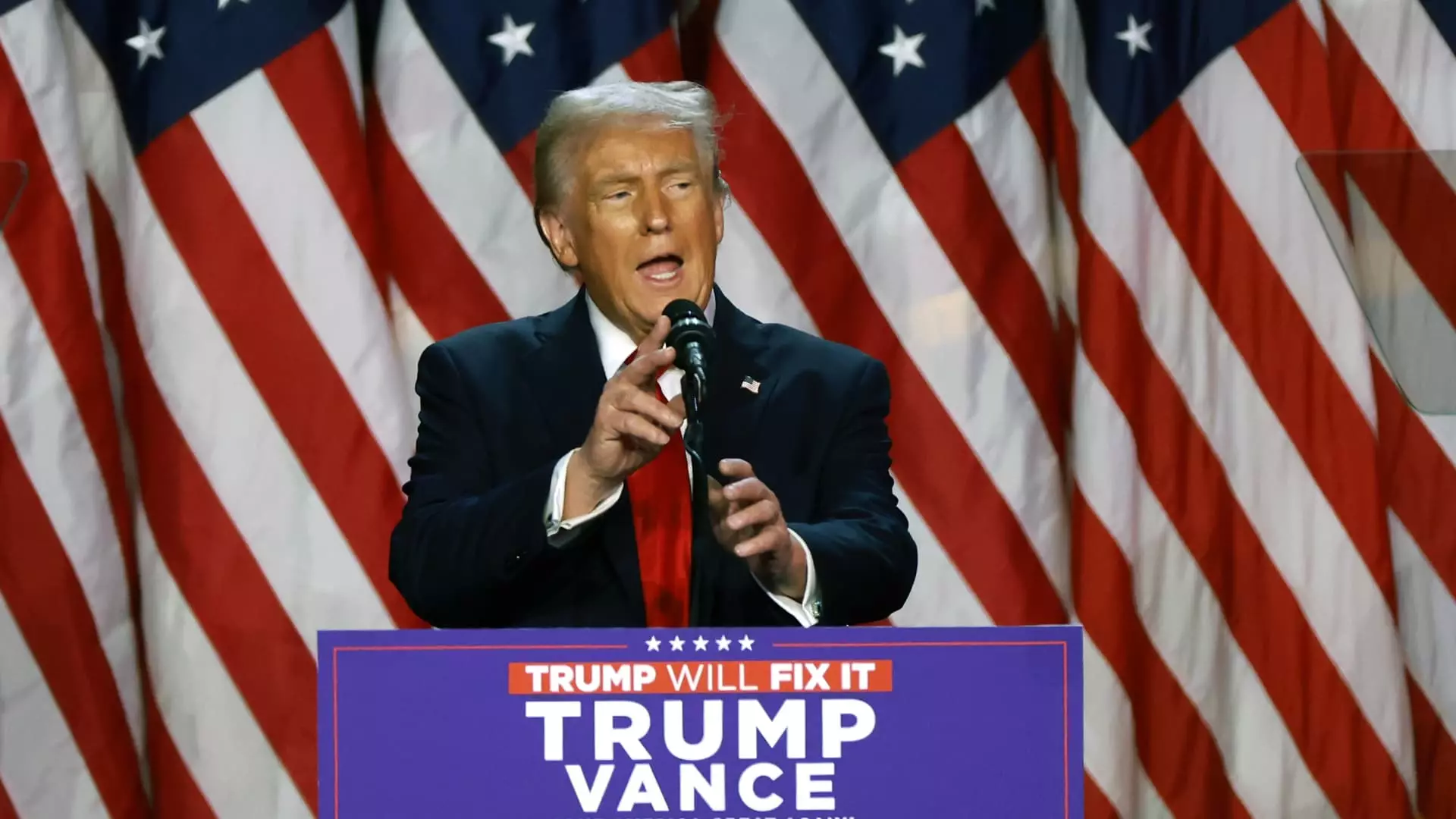In the wake of the 2024 presidential election, financial markets have experienced a hopeful surge, with major indices like the Dow Jones Industrial Average and the Nasdaq hitting unprecedented levels. This positive sentiment stemmed from newly elected President Donald Trump’s victory and the Federal Reserve’s swift decision to lower interest rates. However, this juxtaposition of market exuberance and widespread consumer anxiety embodies what has been labeled “vibecession,” a term denoting the disconnection between Wall Street’s optimism and the everyday financial struggles of many Americans.
Despite Wall Street’s enthusiastic response, a considerable portion of the population grapples with challenges that aren’t reflected in stock prices. Financial experts assert that this disconnect should not deter individuals from focusing on their personal financial tactics. As Rianka Dorsainvil, a certified financial planner, points out, understanding and adapting to changes in the economic landscape is essential, but individuals should primarily concentrate on controlling their financial strategies.
In turbulent financial times, maintaining a long-term perspective is paramount. Dorsainvil emphasizes sticking to a carefully crafted financial plan and only adjusting it when personal circumstances shift. While the economy can be influenced by government policies, interest rates, and market conditions, individuals hold the power to fortify their financial health through disciplined management of their resources.
Notably, the control one has over their financial future can diminish in the face of unpredictable economic events. Therefore, it is essential for consumers to invest time into understanding their financial situations and setting achievable goals that extend beyond immediate market fluctuations.
Building an adequate emergency fund is one foundational strategy recommended by financial experts. Dorsainvil suggests having enough savings to cover three to six months of living expenses. This financial cushion not only brings peace of mind amidst economic instability but also prepares individuals to handle sudden financial demands without jeopardizing their long-term goals.
Investing in tax-advantaged retirement accounts is another crucial step. Different plans, such as traditional and Roth 401(k)s, may offer various benefits depending on one’s income level and tax situation. For instance, taking advantage of employer matching contributions can accelerate wealth accumulation, providing an enhanced savings vehicle during times of uncertainty.
Health Savings Accounts (HSAs) present a unique opportunity for personal finance management. Unlike flexible spending accounts (FSAs) which operate on a “use it or lose it” model, HSAs allow for year-to-year fund carryover, offering a more resilient option for managing health-related costs. Contributions to HSAs are made with pre-tax dollars, grow tax-free, and when used for qualified medical expenses, remain tax-exempt, thus creating a trifecta of tax benefits. As financial expert Lee Baker states, maximizing contributions to HSAs has consistently been advisable, as they can effectively serve dual purposes: a savings and investment vehicle for health-related expenses.
Another point of consideration is the management of credit card debt, which can significantly impact financial wellness. Financial advisors recommend pausing card usage and seeking assistance from nonprofit credit counseling services to strategize effective debt repayment. Reducing debt levels not only strengthens individual financial standing but also prepares one to adapt more seamlessly to economic changes, such as fluctuating interest rates.
Finding missing funds is yet another practical approach. Many individuals may overlook forgotten assets in old accounts. Tools such as the National Association of State Treasurers’ website can facilitate quick searches for unclaimed property, bringing to light potential financial resources that may aid in one’s financial journey.
Amidst complex economic conditions and market sensibilities, maintaining a grounded approach to personal finances is essential. Dorsainvil stresses the importance of steering clear of hasty decisions prompted by fleeting market reactions and headlines that could adversely affect long-term financial outcomes. By focusing on fundamental practices that support financial health, individuals can cultivate resilience to navigate any economic environment, regardless of the political landscape.
In an era marked by swift changes and uncertainties, understanding and honing financial management skills can empower individuals to maintain stability and security in their personal economic lives. Taking proactive steps can lead to a more resilient financial future, enabling one to become not only a spectator of economic trends but a master of their financial destiny.

